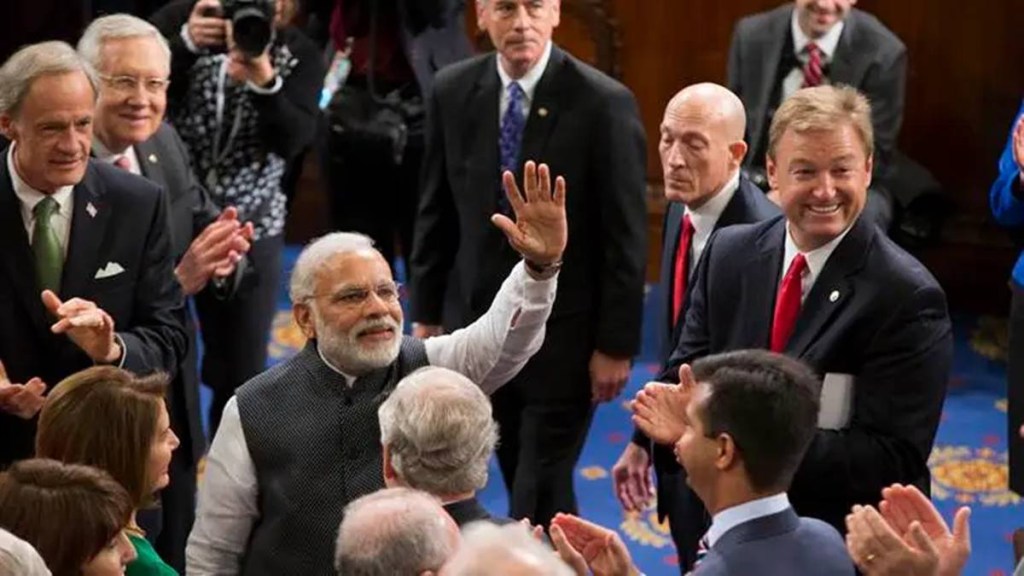Prime Minister Modi may or may not have read Shakespeare but has certainly imbibed the truth in Shakespeare’s words: ‘There is flattery in friendship’ (Henry VI). Flattering his friend President Donald Trump, Mr Modi hopes to negotiate the issues of immigration and deportation, visas, trade balance, tariffs, nuclear energy, South China Sea, BRICS, QUAD and FTA.
President Trump has four years, and no more. Prime Minister Modi has four years, and is believed to desire more. It is obvious that not all the issues can be resolved in the four common years. The next American government — whether Republican or Democrat — may not wish to continue on the path of Mr Trump.
Therein lies the first lesson for India. Look beyond personal ‘friendship’ between two leaders. Besides, as far as Mr Trump is concerned, no one can predict when friend will become foe and foe will become friend.
India May Be Hurt
Mr Modi, in an interview to Mr Lex Fridman, a podcaster, praised Mr Trump for his “humility” and “resilience”. He noted that in his second term Mr Trump was “far more prepared than before” and “has a clear roadmap in his mind with well-defined steps, each one designed to lead him toward his goals”. Mr Modi added, “I truly believe that he has put together a strong, capable group and with such a strong team, I feel they are fully capable of implementing President Trump’s vision.” Not all Americans will agree with the lavish praise heaped on Mr Trump. Not all Senators and Representatives thought that Mr Trump’s choices of Secretaries were capable or strong. Not all Americans will agree that Mr Trump’s vision was good for America or the world.
If Mr Trump implemented his vision, that is not good news for India. If he succeeded in achieving his goals, for example,
- it will mean that most of the undocumented Indians (est. 700,000) in America will be deported to India;
- it will mean that a number of Indian green card holders will be denied U.S. citizenship;
- it will mean that the majority of Indian-American citizens will not be able to bring their families to the United States;
- it will mean that the number of H-1B visas issued to highly qualified Indians will be drastically reduced;
- it will mean that India will be forced to reduce tariffs on Harley-Davidson bikes, bourbon whisky, jeans and other American goods;
- it will mean that the new, stiff American tariffs will be a protectionist wall against Indian exports of aluminum and steel products, and perhaps other products too;
- it will mean that American private investment will be discouraged to set up large job-creating businesses in India; and
- it will mean that the FTA under negotiation with the United States will be tilted in favour of America or still-born.
Present indications are that Mr Trump will not alter his positions or goals. It is unlikely that friendship or flattery will persuade him to look beyond his MAGA supporters or policy of ‘America First’.
Geopolitical Issues
On larger geopolitical issues, what will be Mr Modi’s reaction if the US took control of the Panama Canal in a swift and bloodless operation. As long as the canal remains open for ships, India — or any other country — is not likely to protest, but it will nevertheless be a conquest of territory in violation of international law. Next, what will be Mr Modi’s reaction if the United States took over Greenland “one way or another” as promised by Mr Trump? Can India say that Greenland is too distant and is not our concern? If some ‘conquests’ are condoned, what if Russia took over more regions of Ukraine and China took over Taiwan? And what will prevent China from attempting to take over Aksai Chin or Arunachal Pradesh? A bloody war will follow, but which country will support India?
Modern diplomacy is more than personal friendship. Mr Modi or India cannot burn the bridges with the Democratic Party and put all the money on Mr Trump. In any event, Mr Trump will not be in office after January 19, 2029. The next President may well be a Democrat. In the meanwhile, by totally aligning with Mr Trump and his “goals”, India would have completely alienated Canada and the European countries, especially Germany, France, Britain and Denmark.
The Tariff War
In the last 10 years, Mr Modi was a votary of protectionism; he called it atmanirbharta. Against wise counsel, including of his friend Dr Arvind Panagariya, the government imposed tariff and non-tariff measures on imports of over 500 goods. When Mr Modi protested the proposed higher tariffs on Indian goods, Mr Trump brushed aside the objections. He is getting ready to launch a full-scale tariff war on April 2, 2025. Despite the dosti and the flattery, if India will not be exempted, will India retaliate with reciprocal tariffs?
Engagement and negotiation, based on principles, are at the heart of diplomacy, not flattery. It is likely that Mr Friedrich Merz (likely leader of Germany) with his no-nonsense approach, Mr Mark Carney (PM of Canada) with his measured counter-response, and Ms Ursula von der Leyen (president of the European Commission) with her successful rallying of 27 countries are more likely to succeed in stopping Mr Trump’s wild run trampling international law and agreements. India must stand with the voices of sanity.
Disclaimer: Views expressed are personal and do not reflect the official position or policy of http://financialexpress.com/ FinancialExpress.com Reproducing this content without permission is prohibited.

